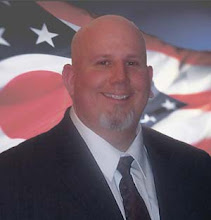In some respects, the WikiLeaks controversy has been a libertarian’s dream: thousands of government secrets ripped from the servers of naïve little Washington bureaucrats and splashed all over the world.
Libertarians (with capital and small-Ls alike) have come close to even jumping with glee over this story while some have ardently defended its founder Julian Assange.
In my first treatise on this topic I admitted to being of two mindsets about it all. It is undeniably satisfying to watch governmental arrogance get knocked-down two or three pegs. At the same time it would be woefully irresponsible to simultaneously ignore the inevitable peripheral consequences many of these leaks will bring-about.
While there is the obvious issue of heightened exposure to danger for our Armed Forces directly related to the security breach, antiwar libertarians also face an enormous Catch-22.
Let us not forget that part of the WikiLeaks process has been the release of thousands of diplomatic cables between the United States and other nations. Some of the contents of these communications have brought significant consternation to all countries involved in them.
Correct me if I’m wrong, but isn’t hampering diplomacy counterintuitive to the libertarian platform of avoiding foreign entanglements with our military?
My next point is a cautionary one, especially as it relates to Assange himself. I find the long list of Progressive organizations stepping-up to his defense quite unsettling. Especially telling when it comes to Assange and WikiLeaks is the fact his attorney (helping him deal with the criminal sexual conduct charges out of Sweden) is Mark Stephens, who just happens to do a significant amount of pro bono work for George Soros’ Open Society Institute.
Also, the more of his own words I read, the more uncomfortable I am with growing libertarian support for Assange. I’m particularly troubled by comments such as this he made to Time Magazine (published December 1): “Since 2006, we have been working along this philosophy that organizations which are abusive and need to be [in] the public eye. If their behavior is revealed to the public, they have one of two choices: one is to reform in such a way that they can be proud of their endeavors, and proud to display them to the public. Or the other is to lock down internally and to balkanize, and as a result, of course, cease to be as efficient as they were.”
In my mind, the key question becomes this: Isn’t it a matter for the people of America to decide and tackle, not a foreign interest?
We must remember: Julian Assange is not an American citizen. He is a foreign national. Yet, he is seeking to affect policy in the United States as if he were a ranking U.S. Senator, White House cabinet member, or senior political pundit.
Make no mistake, Assange’s efforts and motivations are ideological in nature. He discusses revolutionary ideology at length in the Time interview mentioned above.
What Libertarians in the United States must ask ourselves is if his vision of revolution for America and the world is compatible with our goal of constitutional revolution aimed at constitutional restoration.
If they are not, then how close do we wish to cozy-up to him?
Sunday, December 19, 2010
Subscribe to:
Post Comments (Atom)

No comments:
Post a Comment